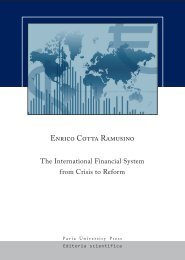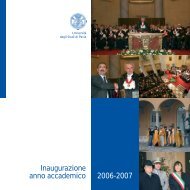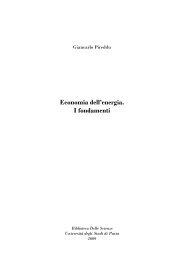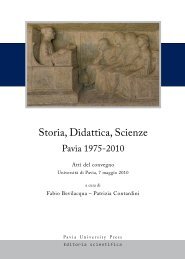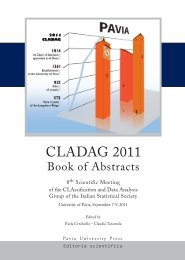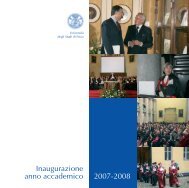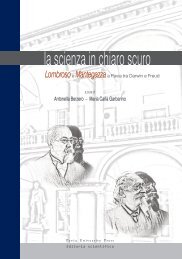The Palestinian Economy. Theoretical and Practical Challenges
The Palestinian Economy. Theoretical and Practical Challenges
The Palestinian Economy. Theoretical and Practical Challenges
Create successful ePaper yourself
Turn your PDF publications into a flip-book with our unique Google optimized e-Paper software.
334<br />
Di Maio – N<strong>and</strong>i<br />
Confirming previous research, our results also suggest that child labour is affected<br />
by changes in the opportunities provided by the local labour market (see for instance<br />
Manacorda <strong>and</strong> Rosati 2007; Edmonds et al. 2009). Empirical evidence from developing<br />
countries suggests the substitution effect to dominate the income effect (Wahba 2006;<br />
Kruger 2007). On the contrary, our results show that in the case of West Bank the income<br />
effect prevails <strong>and</strong> the worsening of the economic condition increases child labour. This<br />
latter result indicates that indeed the effect of closure is not restricted to households<br />
whose father is employed in Israel. On the contrary closures affect children’s time<br />
allocation decision by modifying the functioning of the West Bank economy as a whole.<br />
Interestingly this result is in line with the model presented in Epstein <strong>and</strong> Kahana (2008).<br />
<strong>The</strong> model predicts that, in a Basu-Van setting, the emigration of fathers – inducing an<br />
increase in the domestic local wage – is able to move the economy from an equilibriumwith<br />
child labour to an equilibrium without it. Our results indicate that in West Bank the<br />
reverse situation takes place: the return of fathers – caused by the closure of borders –<br />
increases child labour in the economy. <strong>The</strong> result about the effect of closures on the<br />
district market wage is in line with this interpretation.<br />
Finally our results highlight that child labour <strong>and</strong> school attendance decisions are<br />
interdependent but they may be affected by the conflict in different ways. For instance,<br />
while school attendance appears to be only marginally influenced by the number of<br />
closure days we cannot exclude that other military measures may have a large impact on<br />
human capital accumulation in WB as well. We also speculate that an analysis of the<br />
determinants of school attendance would probably require additional information on the<br />
quality of education, the accessibility or the cost of education, etc. Further analysis <strong>and</strong><br />
data collection is needed on this important aspect.





